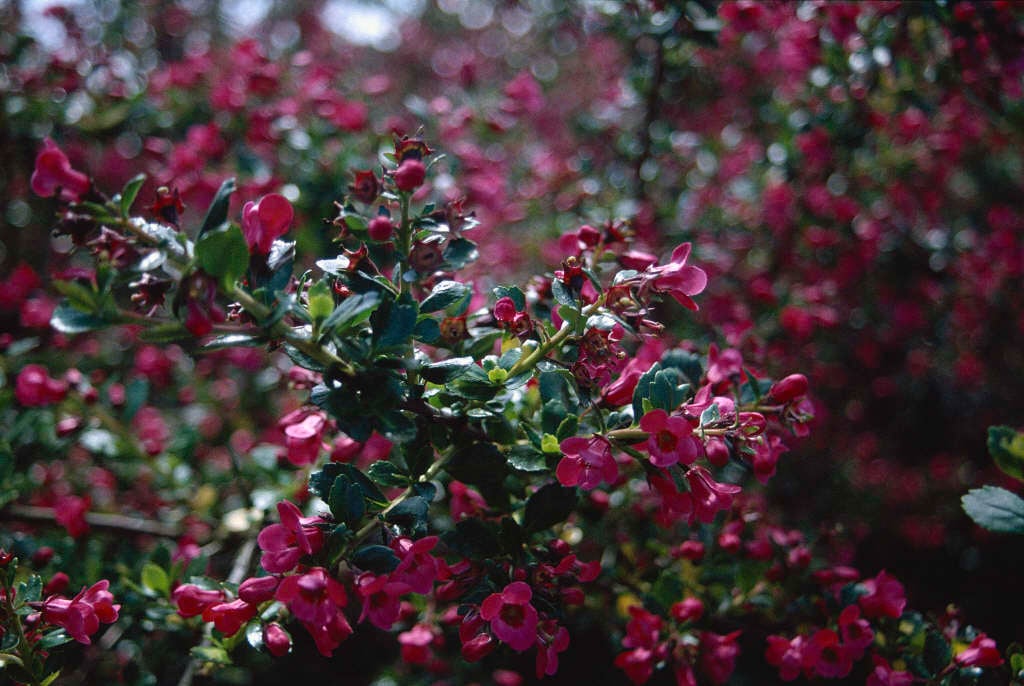Size
Ultimate height
1.5–2.5 metresTime to ultimate height
5–10 yearsUltimate spread
1.5–2.5 metresGrowing conditions
Moisture
Moist but well–drained, Well–drainedpH
Acid, Alkaline, NeutralColour & scent
| Stem | Flower | Foliage | Fruit | |
| Spring | Green | |||
|---|---|---|---|---|
| Summer | Red | Green | ||
| Autumn | Green | |||
| Winter | Green |
Position
- Full sun
- Partial shade
Aspect
South–facing or East–facing or North–facing or West–facing
Exposure
Exposed or Sheltered Hardiness
H4Botanical details
- Family
- Escalloniaceae
- Native to GB / Ireland
- No
- Foliage
- Evergreen
- Habit
- Bushy
- Genus
Escallonia are evergreen shrubs with glossy, leathery, toothed leaves, sometimes sticky, and 5-petalled white, pink or red flowers in terminal racemes or panicles in summer and early autumn
- Name status
Accepted
How to grow
Cultivation
Grows best in well-drained soil in a position in full sun with shelter from cold drying winds; ideal for wall training
Propagation
Propagate by softwood cuttings in early summer, semi-hardwood cuttings in late summer and hardwood cuttings from late summer to autumn
Suggested planting locations and garden types
- Cottage and informal garden
- Coastal
- Wildlife gardens
- Hedging and screens
- Climber and wall shrubs
- Wall side borders
Pruning
Pests
May be susceptible to brown scale
Diseases
May be susceptible to escallonia leaf spot and honey fungus
Get involved
The Royal Horticultural Society is the UK’s leading gardening charity. We aim to enrich everyone’s life through plants, and make the UK a greener and more beautiful place.
